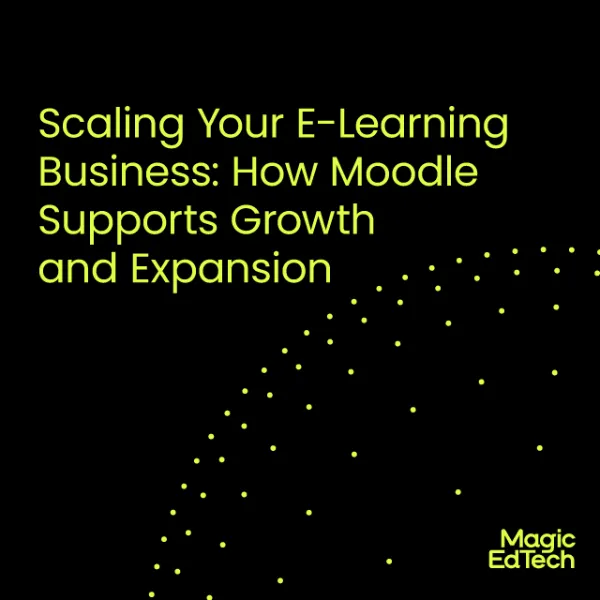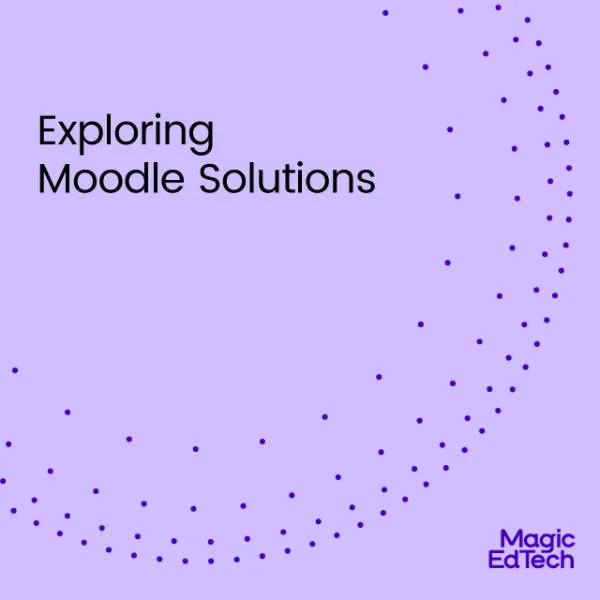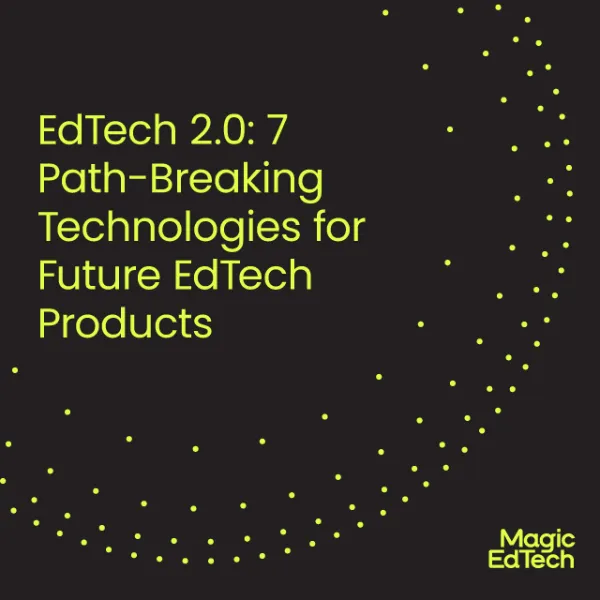Beyond Traditional LMS: How Personalized Moodle Solutions Can Propel Academic Institutions Forward
- 26 July, 2023
- Reading Time: 5 mins
The dynamic education landscape forces academic institutions to face the constant challenge of providing a tailored learning experience that caters to the diverse needs of their students. While traditional Learning Management Systems (LMS) are used extensively, they often fall short of addressing the unique requirements of LMS for eLearning.
Personalized Moodle Solutions help solve the aforementioned problems and play a vital role in revolutionizing how educational institutions approach teaching and learning.
This blog will explore the potential of personalized Moodle solutions and how they can transform academic institutions, benefiting students, educators, administrators, and IT departments.
Understanding Personalized Moodle Solutions
It has become increasingly evident that a one-size-fits-all approach to learning management systems (LMS) may not adequately meet the diverse needs of students in academic institutions. As traditional LMS platforms struggle to address modern learners’ unique challenges, a new solution has emerged – Personalized Moodle.
Custom Moodle Development solutions represent a paradigm shift from conventional LMS models. Unlike rigid systems that deliver the same content to all students, regardless of their abilities or learning preferences, personalized Moodle solutions harness the power of data analytics and artificial intelligence to provide tailored learning experiences.

How Does Custom Moodle LMS Work?
- Learner Profiling: The process begins by creating individual learner profiles. These profiles consider various factors, including academic performance, learning styles, preferences, and progress.
- Data-Driven Insights: The system continuously collects and analyzes student interactions, engagement, and performance data. This data-driven approach helps educators identify areas of strength and weakness, allowing them to design personalized learning pathways.
- Customized Content Delivery: Based on the insights gained, Moodle delivers content, activities, and assessments tailored to the specific needs of each student. This ensures that students receive the appropriate level of challenge and support to maximize their learning potential.
Benefits of Personalized Moodle Solutions
- Enhanced Student Engagement: Personalized content and interactive learning experiences keep students engaged and motivated, leading to higher retention rates and improved learning outcomes.
- Individualized Support: Personalized Moodle Solutions address the unique needs of every student, providing additional support to struggling learners and challenges to those who excel, fostering a positive and inclusive learning environment.
- Data-Driven Decision Making: Educators and administrators can access real-time data insights, enabling them to make informed decisions, identify trends, and refine teaching strategies to optimize student success.
- Flexibility and Adaptability: Personalized Moodle is flexible and can evolve with the changing needs of the educational institution, making it a sustainable and future-proof solution.

Custom Moodle Development for Academic Success
As a highly flexible and open-source learning management system, Moodle offers academic institutions the opportunity to tailor the platform to their specific needs and goals. By customizing Moodle, institutions can create a more effective and engaging learning environment, ultimately leading to academic success for both educators and students.
- Design and User Interface Customization: Institutions can customize the visual appearance of their Moodle site to reflect their branding, colors, and logo. A visually appealing and consistent interface enhances the user experience. It fosters a sense of belonging within the online learning community.
- Content Customization: Customizing Moodle allows institutions to create and organize content that aligns with their unique curriculum and teaching methods. Educators can develop interactive learning materials, multimedia resources, and assessments tailored to diverse learning styles.
- Activity and Resource Customization: Moodle provides a range of activity modules and resource types. Institutions can choose and configure these modules to create engaging learning experiences. Whether it’s discussion forums, quizzes, assignments, or collaborative tools, customizing these activities helps meet specific learning objectives.
- Course Format Customization: Moodle offers various course formats, such as weekly, topic-based, or social. Institutions can select the most suitable format based on their teaching approach and preferences, ensuring seamless navigation and organization of course materials.
- Integration with External Tools: To enrich the learning experience, institutions can integrate Moodle with external tools and applications. This may include video conferencing platforms, plagiarism checkers, and interactive whiteboards, extending the capabilities of the Moodle LMS.
Technical Aspects of Implementing Personalized Moodle Solutions
- Data Collection and Analysis: To implement personalized Moodle solutions effectively, institutions need to collect and analyze data on student interactions, performance, and learning preferences. Learning analytics and data mining techniques can provide valuable insights for tailoring the learning experience.
- Artificial Intelligence and Machine Learning Integration: Personalized Moodle solutions often leverage artificial intelligence and machine learning algorithms to adapt content delivery based on individual learner profiles. Integrating AI capabilities into Moodle requires technical expertise and appropriate algorithms.
- Custom Development and Plugins: Some institutions may require specific functionalities not readily available in the standard Moodle package. In such cases, custom development and plugins can be created to address unique requirements, ensuring seamless integration and compatibility with the Moodle system.
- Data Security and Privacy: Implementing personalized Moodle solutions involves handling sensitive student data. Ensuring robust data security measures, complying with privacy regulations, and adopting best practices for data protection are crucial to maintaining the trust of students and faculty.
- User Training and Support: Introducing personalized Moodle solutions requires educators and support staff training to utilize the platform’s enhanced features effectively. Proper training ensures educators can leverage the system’s capabilities to deliver personalized learning experiences.
Conclusion
As academic institutions seek innovative ways to enhance their teaching and learning practices, personalized Moodle solutions emerge as a beacon of progress. Magic EdTech enables your organization to embrace this cutting-edge edtech and empowers your educators and administrators to unlock the full potential of their students with data-driven insights and equip IT departments to create a seamless digital learning environment.
Don’t miss out on the opportunity to propel your educational institution forward. Reach out to us today and explore how personalized Moodle solutions can transform your specific learning environment and pave the way for a brighter academic future.
Get custom Moodle integrations for your EdTech business today! Click here to schedule a call with our team or learn more about our offerings here.



